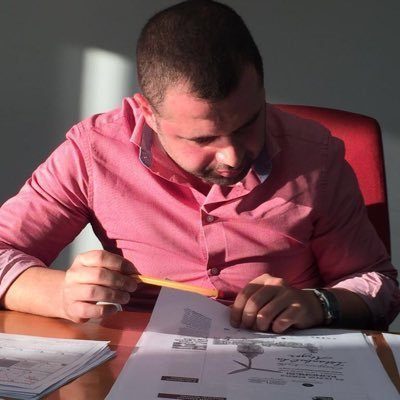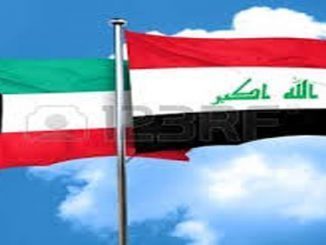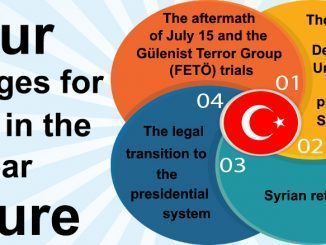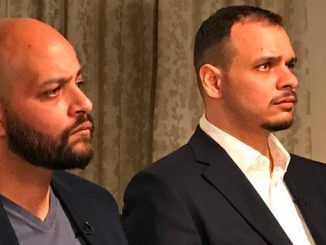
BY: YAHYA BOSTAN*
Ankara is intensely of the opinion that the people of Mosul should live in Mosul and any attempts that will increase sectarian tension should not be allowed in the city
In the first days of the Bashiqa polemic, the Mosul operation was at the door. However, later, the operation had to be postponed until the present day due to the Iraqi army’s failure to plan militarily. When the Mosul operation fell from the agenda, Baghdad forgot the Turkish army’s presence in Bashiqa. Now, the Mosul Operation has become the main topic on the agenda again and that’s why the Iraqi government has brought the Bashiqa polemic up for discussion.
In a tone that pushes the limits of diplomatic kindness, Abadi repeated that he wants Turkish soldiers to leave Bashiqa camp. Ankara’s response to Abadi’s statements was different from its previous response a year ago. Ankara, which tried to tranquilize Baghdad last year, has this time responded to the Iraqi government as harshly as Abadi did.
Ankara has emphasized that Turkish troops will not leave Bashiqa, that 63 countries as well as Turkey participate in the coalition against Daish and that these troops train other soldiers to participate in the fight against Daish and at the same time provide security for Turkey against the PKK and Daish terror groups.
Why did Ankara respond to Baghdad in that tone? Because Abadi does not speak his own mind and he does not speak for the Iraqi people either. He, in fact, speaks for a consortium that tries to keep Turkey out of the Mosul operation and that wants to fill the gap and share the territories that will exist after Mosul is liberated.
What does this consortium consist of and why does it try to disqualify Turkey at this conjuncture? In this equation, Iran stands on one side. Through participating in the Mosul operation via Shiite militias, Iran wants to change Mosul’s demographic structure and cause new sectarian tension. This is something unacceptable for Turkey. Ankara’s Mosul thesis is that Mosul’s demographic structure must not be damaged. Ankara is intensely of that opinion and highlights that the people of Mosul should live in Mosul and any attempts that will increase sectarian tension should not be allowed in the city. Because in Mosul, the Shiite militias’ attacks are aimed at Sunnis, and Sunnis’ forced migration from the town and the change of the demographic structure are great threats to Turkey’s security. There are two points why all of the above pose a security threat to Turkey: first, it will cause a new mass refuge influx to Turkey and secondly, this will feed the sectarian tension and lead to new clashes that will trigger ones in Turkey, as well.
Another player striving to take a share in Mosul is the PKK, a terrorist group that settled in Sinjar when the Yazidis were removed. The PKK is continuing its attacks on Turkey and trying to join the Mosul operation with the help of former Iraqi President Jalal Talabani. So, as a terrorist group that experiences troubles with Kurdistan Regional Government (KRG) President Masoud Barzani, the PKK hopes to make its presence in the city permanent. This step is also aimed at undermining Barzani and disrupting the KRG’s stability, which is in place thanks to Barzani’s efforts. The presence of the U.S., which supports this de facto consortium of Tehran, Baghdad, Talabani and the PKK through its remarks about the Bashiqa camp, reveals an interesting picture.
Seeing the whole equation, Ankara decided not to take a step back from its military presence in the Bashiqa camp, thinking that its withdrawal will match the game plan that will be practiced in the region. No regional players want to avoid deploying soldiers to the field and engaging in a clash for the sake of their security and interests. Ankara waited for a long time to make its presence felt in the field, however, it gave up waiting when a corridor of terror was imposed on it along the Syrian border. It is striving to ensure its border security not within, but beyond the borders. For Ankara, the military presence in Bashiqa is as significant as the Operation Euphrates Shield that is being carried out against Daish.
*YAHYA BOSTAN is a Turkish journalist and columnist. He writes for Daily Sabah Turkish newspaper.
(Published in Daily Sabah on Wednesday, Oct. 12, 2016)



